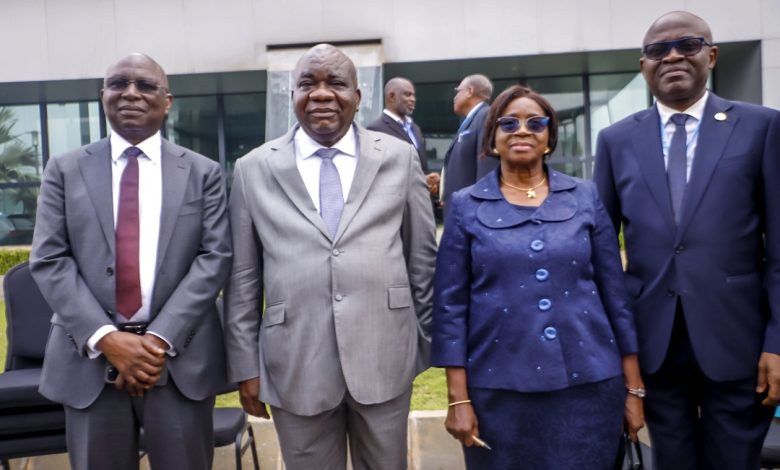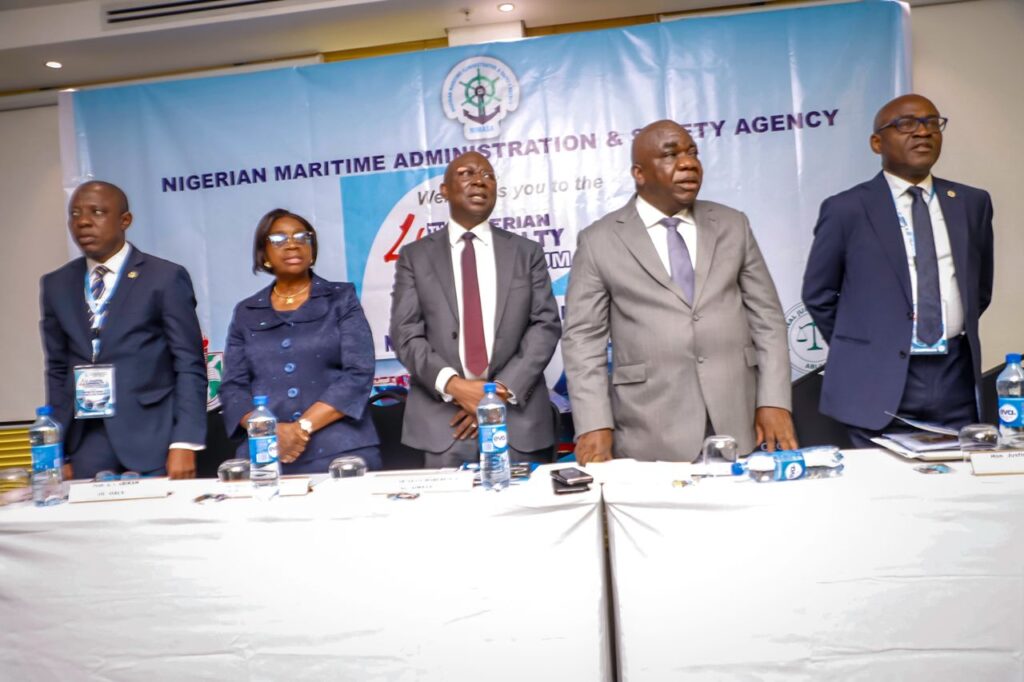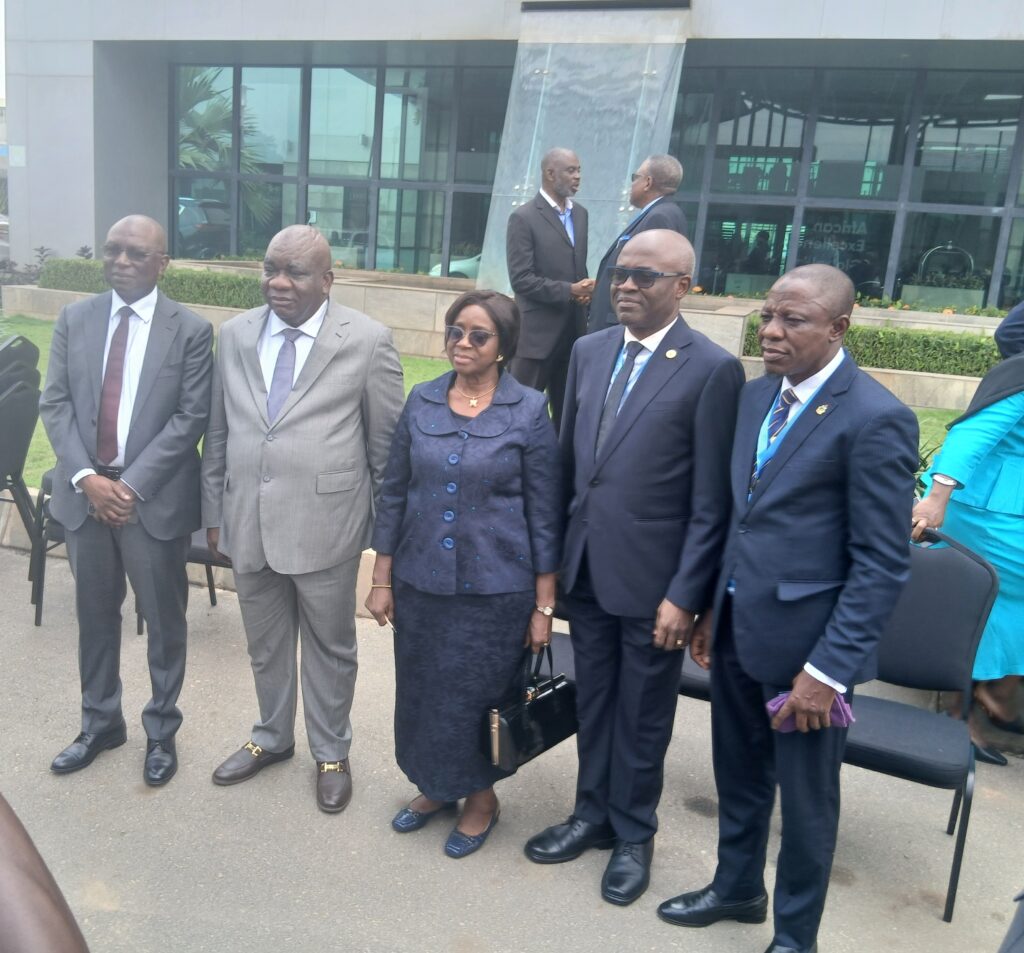Business
‘Judiciary Central To Maritime Prosperity’ – Mobereola, DG NIMASA

BY EGUONO ODJEGBA
The Nigerian Maritime Administration and Safety Agency (NIMASA), Wednesday, took center stage in rallying the judiciary and maritime stakeholders to fortify Nigeria’s marine and blue economy ecosystem at the 4th Nigerian Admiralty Law Colloquium held at the LEGEND HOTEL, lkeja Lagos.
The colloquium with the theme “Charting the Course for Nigeria’s Blue Economy,” served as a strategic platform for aligning legal, regulatory, and economic frameworks to unlock the vast potential of Nigeria’s maritime domain.

In his welcome address, NIMASA Director General, Dr. Dayo Mobereola emphasized that the blue economy is no longer a peripheral ambition but a national imperative noting that with the establishment of the Federal Ministry of Marine and Blue Economy, Nigeria is poised to institutionalize ocean-based economic activities as a cornerstone of diversification.
“Our vision is holistic. We are leveraging marine resources to drive socio-economic growth, enhance safety and security, and align our regulatory frameworks with global best practices”, Mobereola said.
He highlighted key initiatives such as the domestication of international conventions, the Deep Blue maritime security project, and the continuous review of legal instruments. This is even as he was unequivocal in his assertion that the judiciary remains a critical actor in this transformation. “Interpretation of legal instruments and case decisions is vital for sustainable development. Without judicial clarity and efficiency, our blue economy cannot thrive.”
Collaborating, the Chief Justice of Nigeria, Justice Kudirat Kekere-Ekun remarked opined that judicial delays must be avoided lest it undermines investor confidence. Represented by Justice Emmanuel A. Agim, the Chief Justice of Nigeria, Hon. Justice the CJN delivered a sobering message on the consequences of judicial inertia. “Delay in quick judicial ruling has a way of killing international trade and investors confidence.”

This concern echoed throughout the colloquium, reinforcing the urgency of timely and informed adjudication in maritime disputes. The CJN’s remarks served as a call to action for judges to embrace specialized knowledge and expedite rulings that impact transnational commerce and marine investments.
In his contribution, tye National Judicial Institute (NJI) Administrator, Justice BabatundeAdejumo speaking on “Admiralty Law Demands Specialized Understanding” underscored the complexity of admiralty law, which intersects international conventions, environmental regulation, and commercial contracts.
“Maritime disputes are not conventional. They involve charter parties, bills of lading, marine insurance, and cross-border claims,” Adejumo explained.

“Judges must be equipped to navigate these waters.”
He praised the colloquium as a rare forum for cross-sector dialogue, promoting consistency in judicial reasoning and enhancing Nigeria’s maritime governance. Also speaking on “The Rule of Law Is Our Compass”, Hon. Justice John T. Tsoho, Chief Judge of the Federal High Court, reaffirmed the court’s constitutional mandate in admiralty matters.
“The Federal High Court does not view this colloquium as an ordinary event, but as a strategic imperative,” he declared.
Justice Tsoho emphasized that the Blue Economy—spanning shipping, marine tourism, fisheries, and ocean energy is Nigeria’s next frontier.
He therefore called for judicial foresight, precision, and alignment with international protocols.
“Our judges must be abreast of global best practices. This colloquium is vital for continuous judicial education,” he added. He also stressed the importance of efficient dispute resolution in attracting foreign direct investment (FDI).
“Investors need confidence that their assets and contracts are protected by a predictable and sophisticated legal system. The rule of law is the compass guiding the success of Nigeria’s maritime sector.”
Unarguably aunified vision for maritime growth, the colloquium brought together justices from the Supreme Court, Court of Appeal, and Federal High Court, alongside maritime administrators, legal scholars, and industry experts.
Discussions focused on jurisdictional challenges, cabotage enforcement, environmental law, and the legal implications of emerging marine technologies.
As Nigeria charts its course through the vast opportunities of its 853-kilometre coastline and expansive maritime domain, the judiciary stands as both compass and anchor—ensuring steady sail of the voyage toward economic.
Continue Reading

































